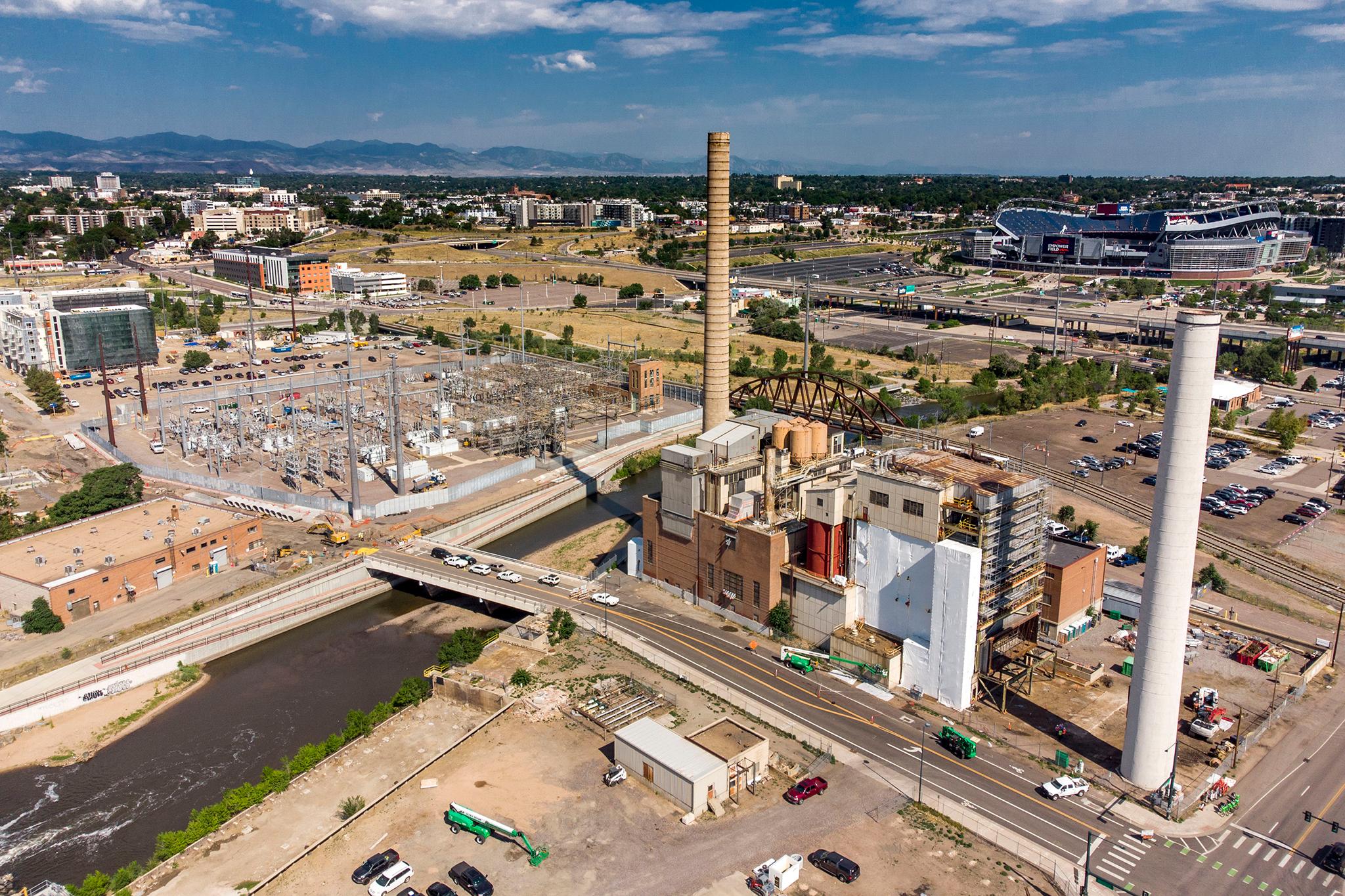Since 2015, the Zuni Generating Station near the South Platte River and W. 13th Avenue has sat idle. It provided Denverites with steam and electricity for over a 100 years but in 2015 the plant was retired and in 2021 it was decommissioned.
So, what's the plan for the over 120-year-old structure?
Xcel Energy, which owns the plant, planned to demolish the structure and possibly create a new substation in the future. A substation converts high voltage power from large power lines into low voltage power to disperse throughout the city.
But Sun Valley residents have other ideas in mind.
Last week, at the Sun Valley Community Coalition meeting, residents voted and agreed that they wanted to preserve the existing plant and turn it into a community hub.
"This is a structure people see everyday," said Councilwoman Jamie Torres, whose district encompasses Sun Valley. "This is a neighborhood that's rapidly transforming before their eyes. They appreciate that it is decommissioned and it's not an operating coal plant, obviously, but they also have an appreciation for their history as a community and as a neighborhood. I think removing that structure and not allowing it to convert into something that benefits the community is one of the things that they don't want to see happen, if they can help it."
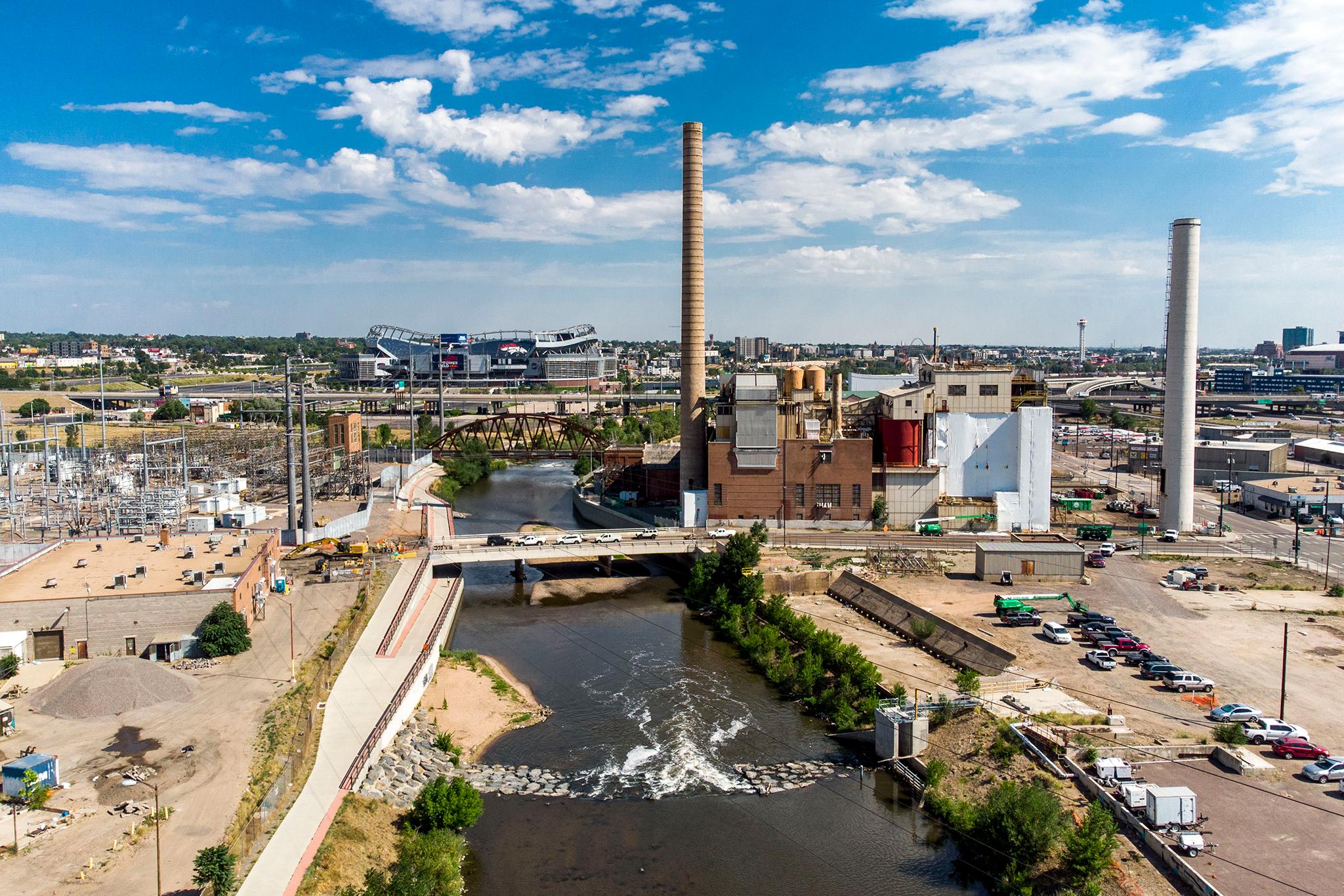
Sun Valley residents have been eyeing the plant since at least 2015, according to Susan Powers, president of Urban Ventures. Powers is a stakeholder in the community and her development company has worked on several projects in the area including Raices Brewing Co. and Steam on the Platte.
Powers said residents have been interested in seeing the plant be reused and turned into a public market for all Denverites that would include a farmers' market-type space with access to fresh foods and booths for local entrepreneurs to sell their food or merchandise. Think Reading Terminal Market in Philadelphia or Pike Place Market in Seattle.
"It's about a 100,000 square foot building and could be a big production for the neighborhood," Powers said. "It has the potential to be an iconic building that we see when we go to other cities. This would be a way to bring healthy food into Sun Valley and West Denver. It would create local jobs. We would have a commissary kitchen where local entrepreneurs could cook their food and sell it at the market." All things that are on brand for the neighborhood.
Sun Valley is considered a food desert. According to the United States Department of Agriculture, an area is considered a food desert when at least 500 people, or 33 percent of the area population, lives more than one mile away from a supermarket or large grocery store.
Also, as Torres said, residents have been experiencing rapid redevelopment through Denver Housing Authority projects and a proposed development of the Stadium District. With all the redevelopment plans, residents have been asking for a seat at the table to ensure their needs and wants are heard and hopefully implemented. Having space for local entrepreneurs is always a big factor for residents and it's been requested in both the DHA plans and the Stadium plan.
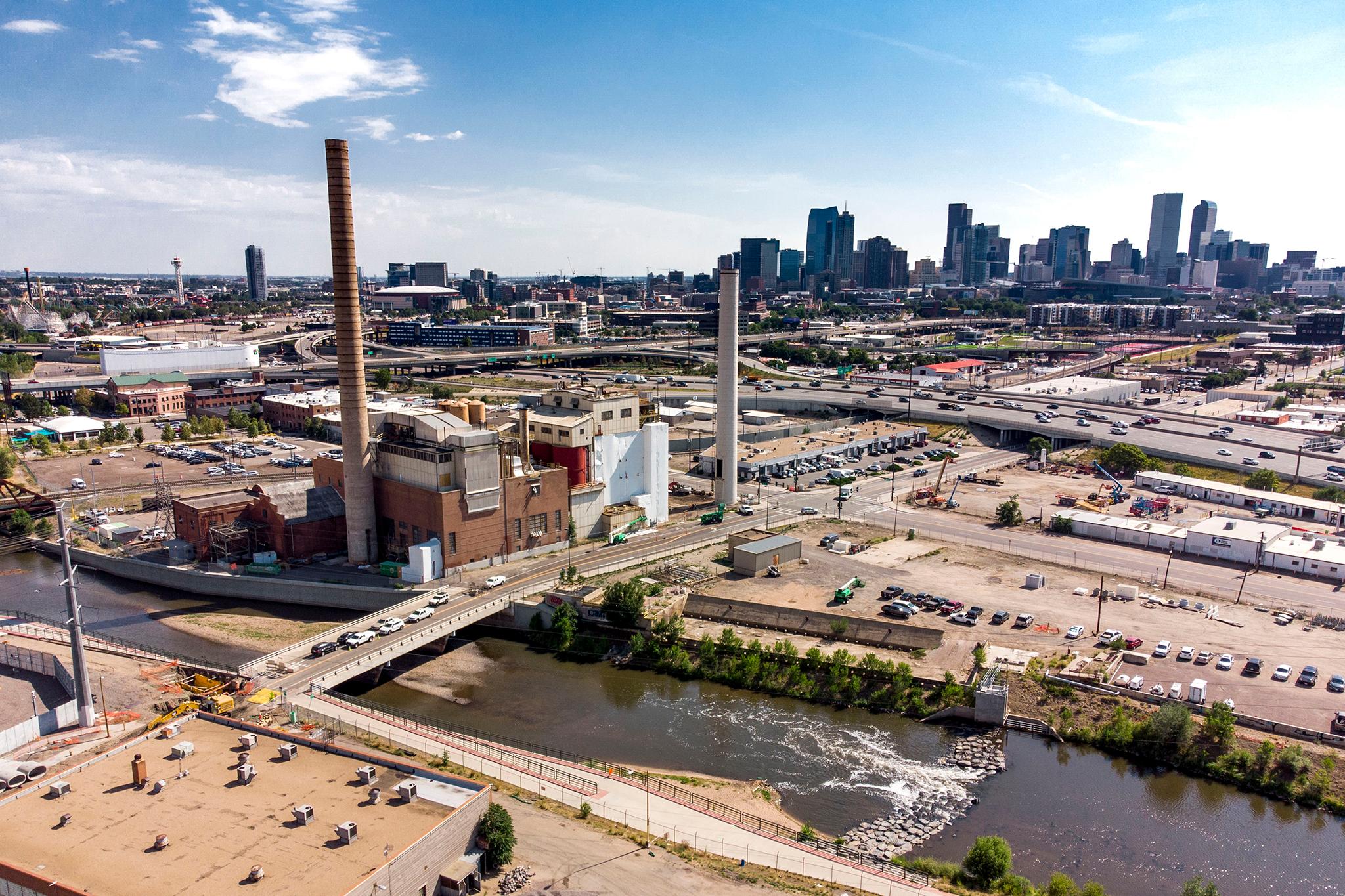
The proposed public market would also offer that space for residents.
"This neighborhood needs a lot of love and we've been building it up for a long time and there are a lot of great things coming," said José Beteta, co-owner of the brewery, Raices.
That's what residents are trying to continue to accomplish in the case of the plant.
But while residents were making plans for the building, Xcel was moving forward with their own plans to demolish the structure.
Xcel received approval from the Colorado Public Utilities Commission in January 2021 to "decommission, dismantle, and demolish all structures, and remediate and restore the former plant."
The PUC approved a budget of $22 million for the project and, as it stood, Xcel would be responsible for the above and any environmental abatement that was required to bring the plant up to "industrial standards."
Powers said residents weren't aware Xcel wanted to demolish the building nor were they aware that Xcel would possibly put a substation in its place.
"The community did not know," Powers said. "When they went to the PUC, they went with a plan to demolish the building but they never revealed that to anybody. We were really in shock because at that time we've been doing a lot of research on other communities that have taken these types of buildings and reused them and that's what we wanted done."
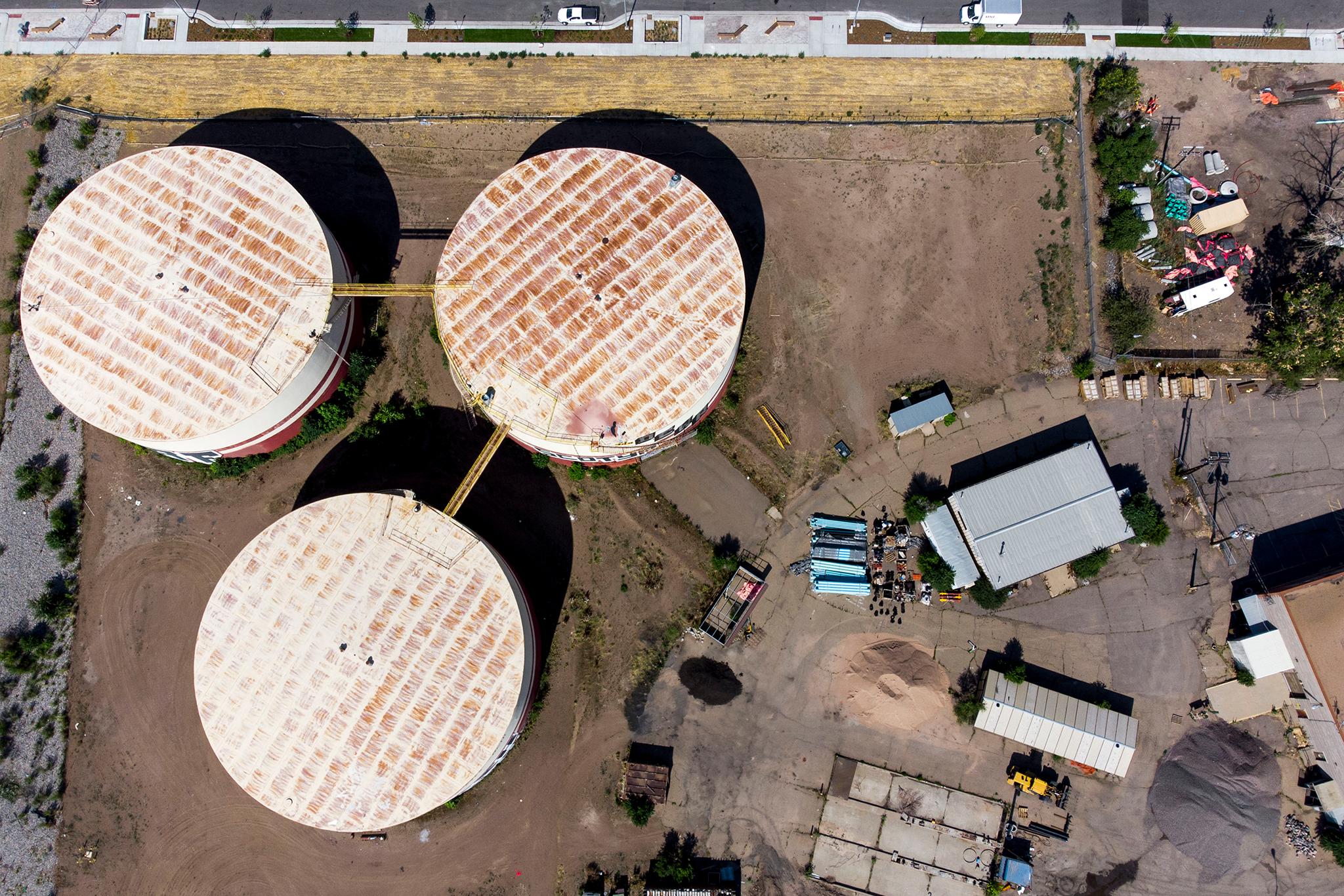
Once residents and leaders were aware of Xcel's plans, city council and Historic Denver sent letters to Xcel in the fall asking them to halt their demolition plans and work with residents on the future of the site.
"Given the history of both the plant and the surrounding neighborhoods, the future of the site is both an environmental justice issue and opportunity to create long overdue community benefits," the city council letter read. "Residents of Sun Valley and neighboring areas lived with the impacts of a variety of pollutants into the South Platte River, flood risk, and disinvestment. The discontinued active use of the Xcel Zuni Generating Station has opened the potential to transform those impacts."
According to Grace Lopez Ramirez, the senior area manager for community and local government affairs, the only work Xcel has done on the site is removing some of the heavy equipment inside the building.
But residents have expressed concern that Xcel is damaging the structure in the process of removing the equipment.
Lopez Ramirez said that isn't the case. At the recent Sun Valley meeting, she also acknowledged that Xcel, since the process began, hasn't adequately communicated its plans with residents.
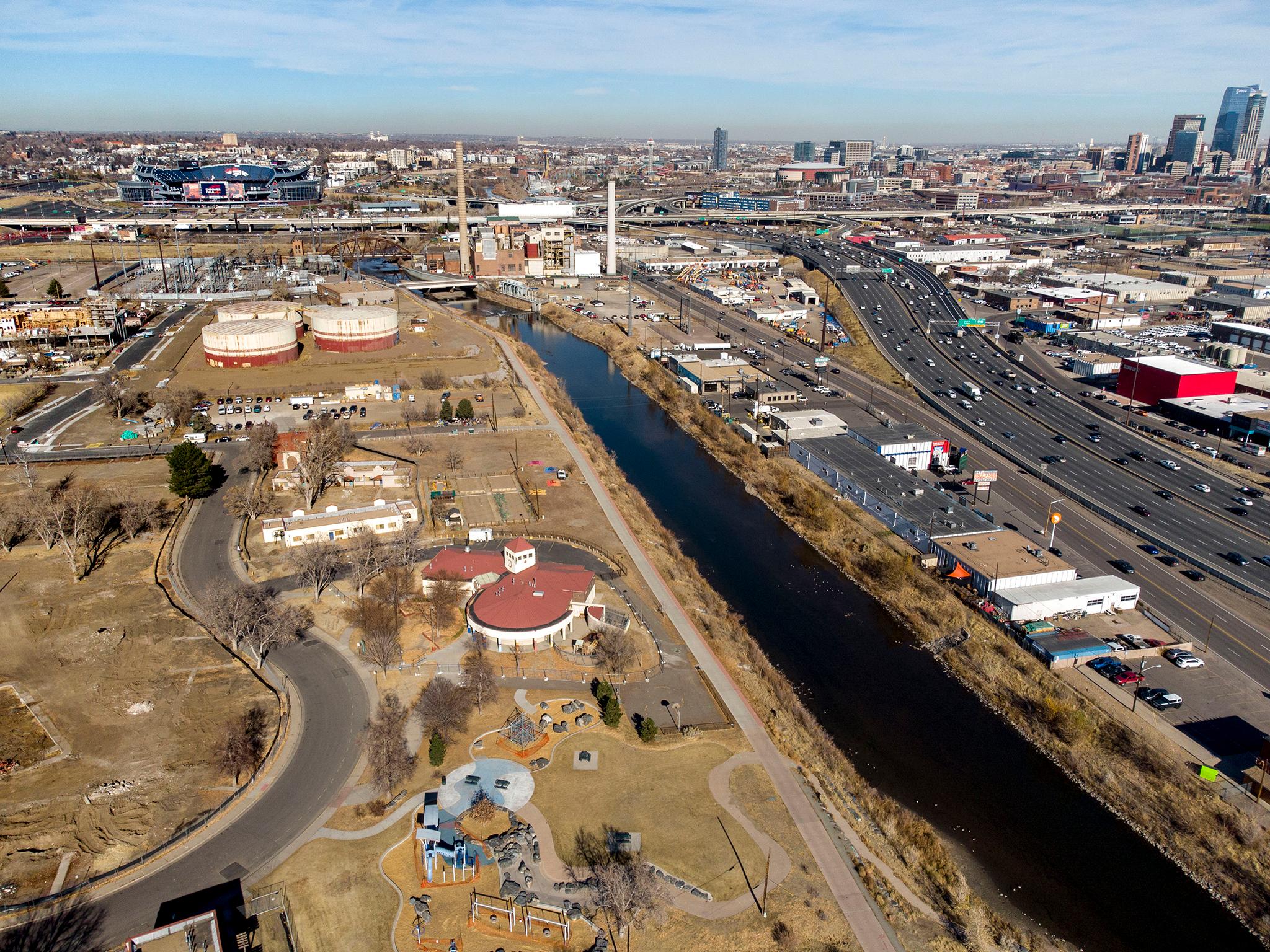
She began by apologizing to residents and stating that there will be more open communication moving forward.
"I know that you as a community have been doing a lot of community planning these last few years with DHA, the Stadium District and with a lot of other folks and from what I can see... we haven't been at the table as much as we should have," Lopez Ramirez said. "We have been long-time stakeholders in this community. We want to be better neighbors...We're committed to making sure that we're listening and that we're working with you, the community and the city on the future of this plant."
Lopez Ramirez added that Xcel will pause its demolition plans for at least a year, so residents, the city and Xcel can come to an agreement on what to do with the plant.
But the issue remains -- if Xcel sells the site, whether that be to the city, DHA or whomever-- where will they put a future substation?
As the city grows, so does the need for power. Denver's goal is to eliminate its need for natural gas and make the city 100% electrified by 2030. For Xcel to meet that goal, they will need more substations.
Lopez Ramirez said it's unclear how many additional substations Xcel needs but the company has asked the city to provide a list of possible locations where they can put these substations in the future. She added that it's an ongoing conversation with the city.
Torres agreed. She said the city recognizes Xcel's need for more space. She told residents that over the next year, she hopes there will be a more concrete plan for Xcel's expansion.
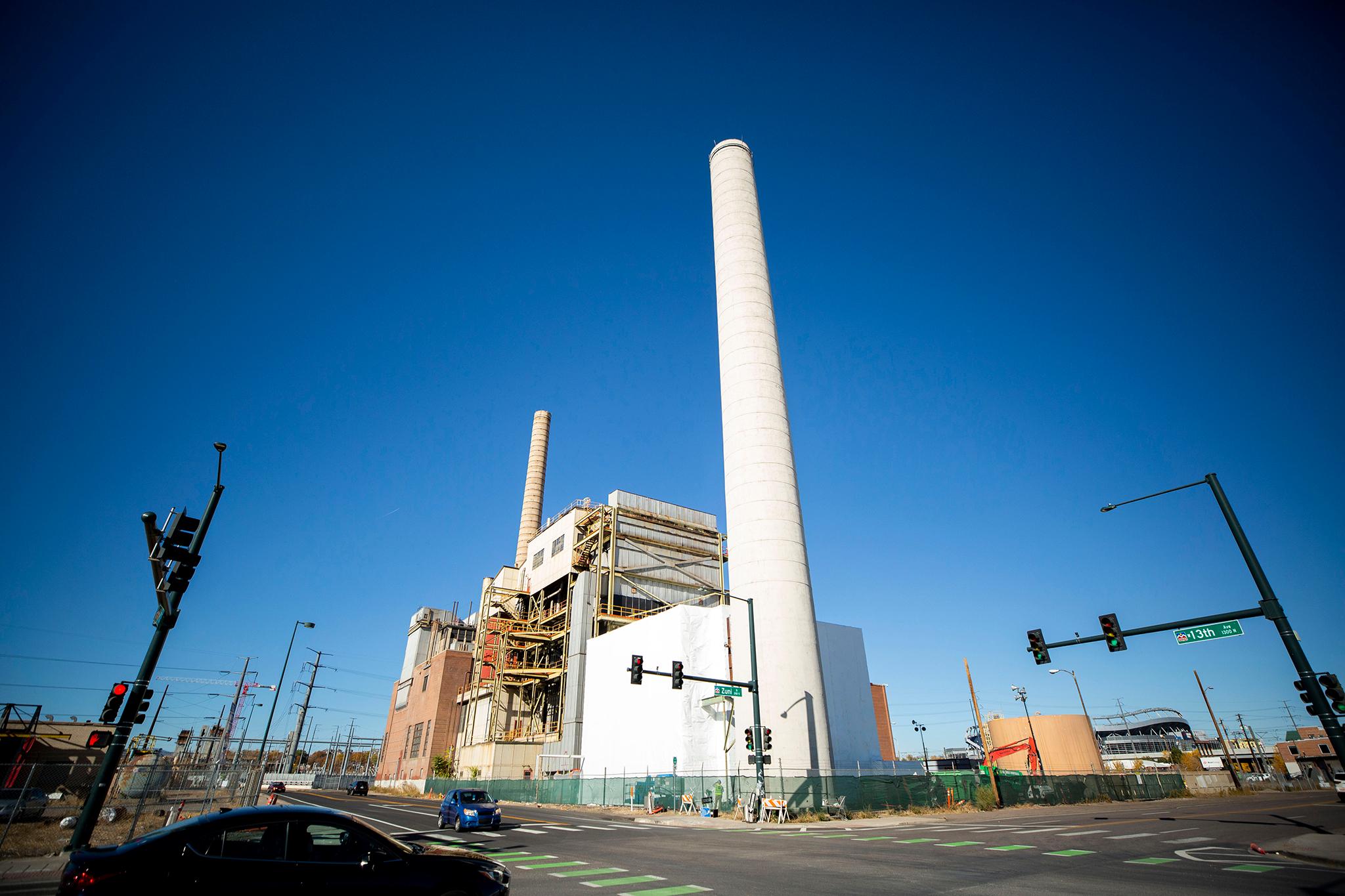
Some residents acknowledged that there could be some type of compromise in the future. There's a possibility that the substation could go underground, depending on the environmental abatement. There is also the possibility that half of the Xcel site, which in total is about seven acres, be dedicated to a substation, while the plant continues to exist.
But ultimately, residents voted against putting a substation where the existing plant is located. Taz Romine-Mann, secretary of the Community Coalition, said it's understandable that Xcel needs to power the city but Sun Valley has already borne the weight of the plant through its coal and steam phases. Residents agreed that while the city may need power, Xcel should find another location before they begin to compromise.
"I think that the 'common good' has been the justification for a lot of neglect and abuse of this community," said Romine-Mann. "Sun Valley has the means of advocating for itself and the days of Sun Valley being looked over are over. We want to work with these groups. We want to be included and as far as compromise, we could've been much further along if they had come to us first. We don't simply want to be an obstacle towards the betterment of our city nor do we want to be overlooked."

